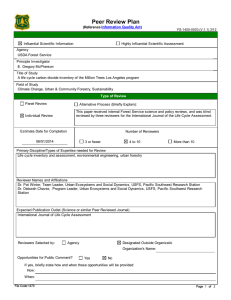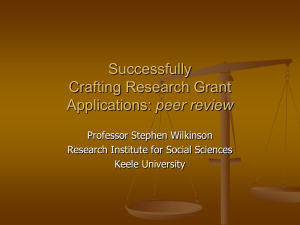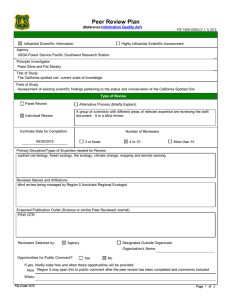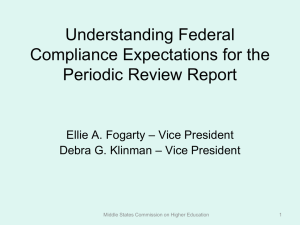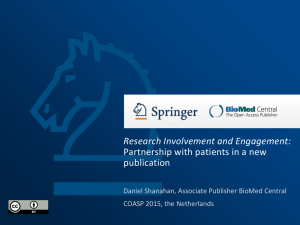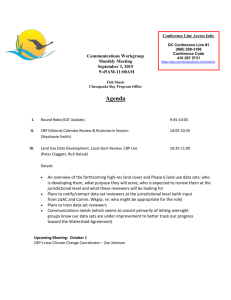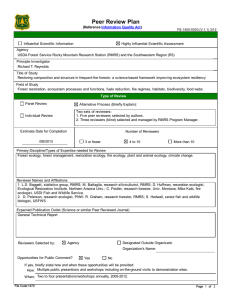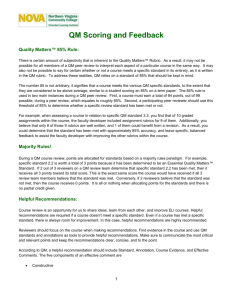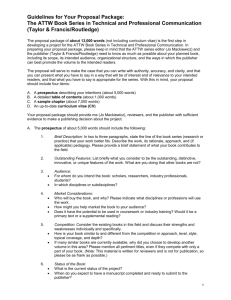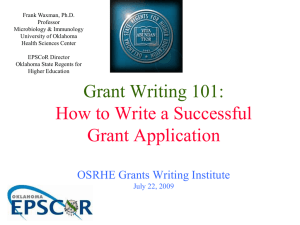Internal Peer Review for Grant Applications
advertisement
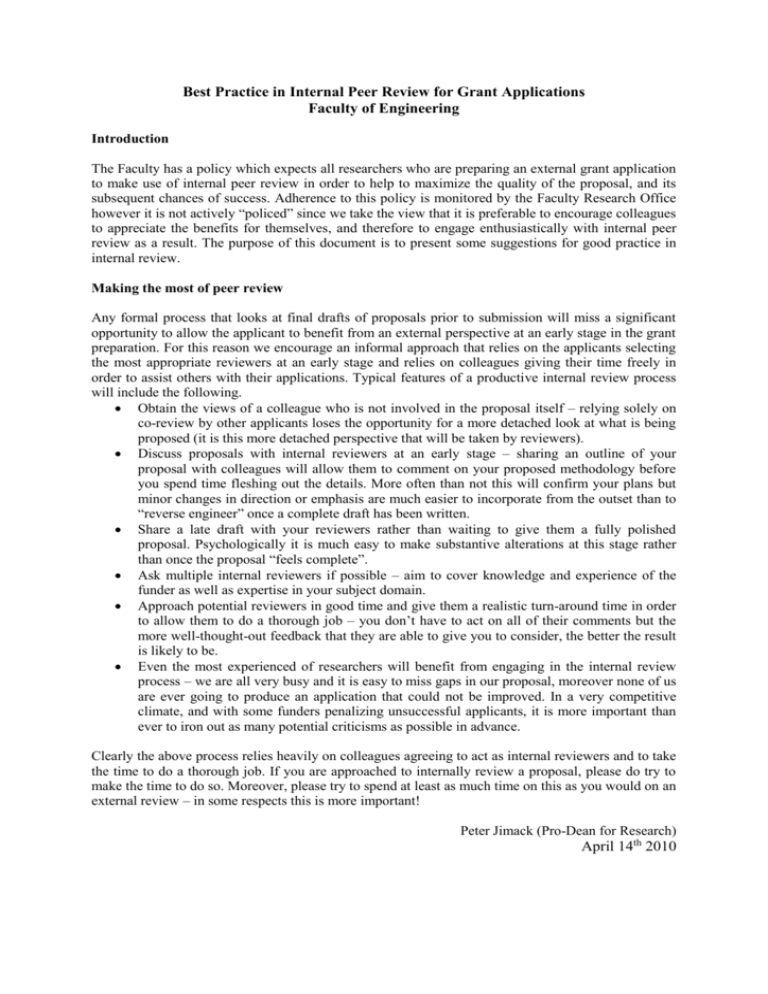
Best Practice in Internal Peer Review for Grant Applications Faculty of Engineering Introduction The Faculty has a policy which expects all researchers who are preparing an external grant application to make use of internal peer review in order to help to maximize the quality of the proposal, and its subsequent chances of success. Adherence to this policy is monitored by the Faculty Research Office however it is not actively “policed” since we take the view that it is preferable to encourage colleagues to appreciate the benefits for themselves, and therefore to engage enthusiastically with internal peer review as a result. The purpose of this document is to present some suggestions for good practice in internal review. Making the most of peer review Any formal process that looks at final drafts of proposals prior to submission will miss a significant opportunity to allow the applicant to benefit from an external perspective at an early stage in the grant preparation. For this reason we encourage an informal approach that relies on the applicants selecting the most appropriate reviewers at an early stage and relies on colleagues giving their time freely in order to assist others with their applications. Typical features of a productive internal review process will include the following. Obtain the views of a colleague who is not involved in the proposal itself – relying solely on co-review by other applicants loses the opportunity for a more detached look at what is being proposed (it is this more detached perspective that will be taken by reviewers). Discuss proposals with internal reviewers at an early stage – sharing an outline of your proposal with colleagues will allow them to comment on your proposed methodology before you spend time fleshing out the details. More often than not this will confirm your plans but minor changes in direction or emphasis are much easier to incorporate from the outset than to “reverse engineer” once a complete draft has been written. Share a late draft with your reviewers rather than waiting to give them a fully polished proposal. Psychologically it is much easy to make substantive alterations at this stage rather than once the proposal “feels complete”. Ask multiple internal reviewers if possible – aim to cover knowledge and experience of the funder as well as expertise in your subject domain. Approach potential reviewers in good time and give them a realistic turn-around time in order to allow them to do a thorough job – you don’t have to act on all of their comments but the more well-thought-out feedback that they are able to give you to consider, the better the result is likely to be. Even the most experienced of researchers will benefit from engaging in the internal review process – we are all very busy and it is easy to miss gaps in our proposal, moreover none of us are ever going to produce an application that could not be improved. In a very competitive climate, and with some funders penalizing unsuccessful applicants, it is more important than ever to iron out as many potential criticisms as possible in advance. Clearly the above process relies heavily on colleagues agreeing to act as internal reviewers and to take the time to do a thorough job. If you are approached to internally review a proposal, please do try to make the time to do so. Moreover, please try to spend at least as much time on this as you would on an external review – in some respects this is more important! Peter Jimack (Pro-Dean for Research) April 14th 2010
